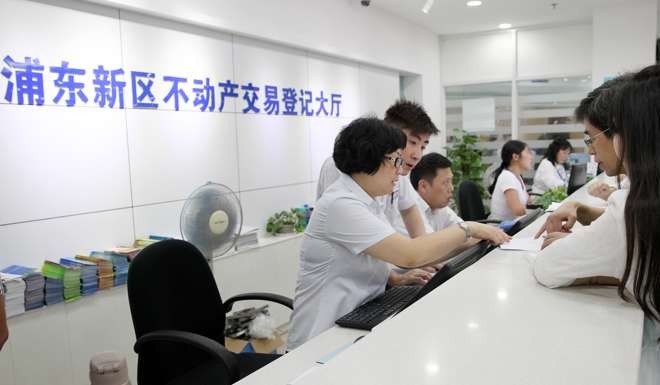
As China’s house prices continue to boom, real estate investment remains mysteriously weak
In spite of big house price gains in major cities, the important drivers of the economy, construction starts and other forms of investment, are rising at a more tepid pace
China’s surging property prices might not add up to a major boon for the economy, as construction starts and other forms of investment have been relatively subdued, leaving the wider economy bereft of a major driver, according to Swiss bank UBS.
“The growth in new construction starts is much slower than property sales,” said Wang Tao, chief China economist at UBS. “It shows developers take a cautious outlook and are trying hard to clear existing projects, on the other hand, land prices have risen too fast. ”
New construction starts measured by floor area were down 19.4 per cent in September on year, according to the National Bureau of Statistics (NBS). That compares to a 34 per cent jump in property sales in the same month.
For the first nine months of the year, property investment grew 5.8 per cent, accelerating from 5.4 per cent in the first eight months.
“Its contribution to the economy is limited,” Wang said, noting that the figures were better than last year, but not exciting.
Wang added that the strong performance in home sales and prices had relatively little impact on the overall economy. Property investment and new construction are the engines of economic growth as they boost demand for commodities and materials and support both industrial and infrastructure investment.

China’s thrid quarter GDP growth stood at 6.7 per cent. Of the growth recorded in the first three quarters, the real estate industry contributed about 8 per cent, according to NBS spokesman Sheng Laiyun.
Wang said the recent policy tightening on the property sector will weaken property sales in the next 18 months and slow property investment and construction in 2017.
Meanwhile, the central bank is unlikely to either further cut interest rates or raise them as the central government wants to boost the economy but avoid a property bubble.
Standard & Poor’s global ratings director of financial institution rating Liao Qiang, said that the quality of new mortgages issued in this latest round of credit growth are significantly poorer than that of prior years because the loan-to-value ratio is higher and applicants are misrepresenting their personal data.
“We have heard a lot of reports that in those hot spot cities mortgage borrowers’ income [reported to banks] was inflated. We believe such fraud are not isolated cases. So when housing prices in these cities fall, and income growth stagnates because of the economic downturn, borrower’s mortgage service ability could be severely weakened,” he said.
But UBS’s Wang said the overall housing leverage in China is comparatively low, despite the fact that mortgage lending has expanded at a rapid clip in the past few months.
“The average down payment is 30 per cent, that compares to the US level of 3 per cent for many years until 2008,” she said.
That means Chinese home owners have stronger holding power in the event of price corrections, she said.


